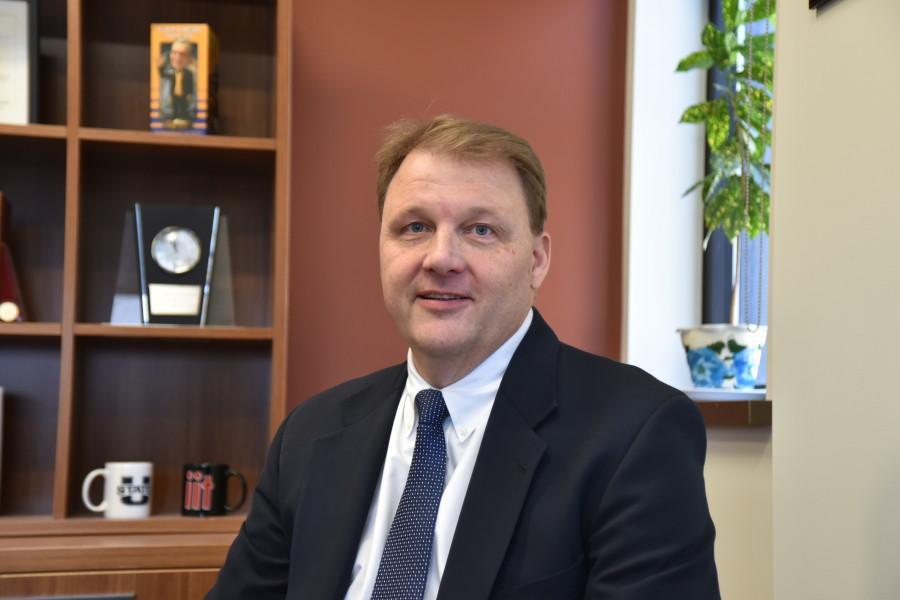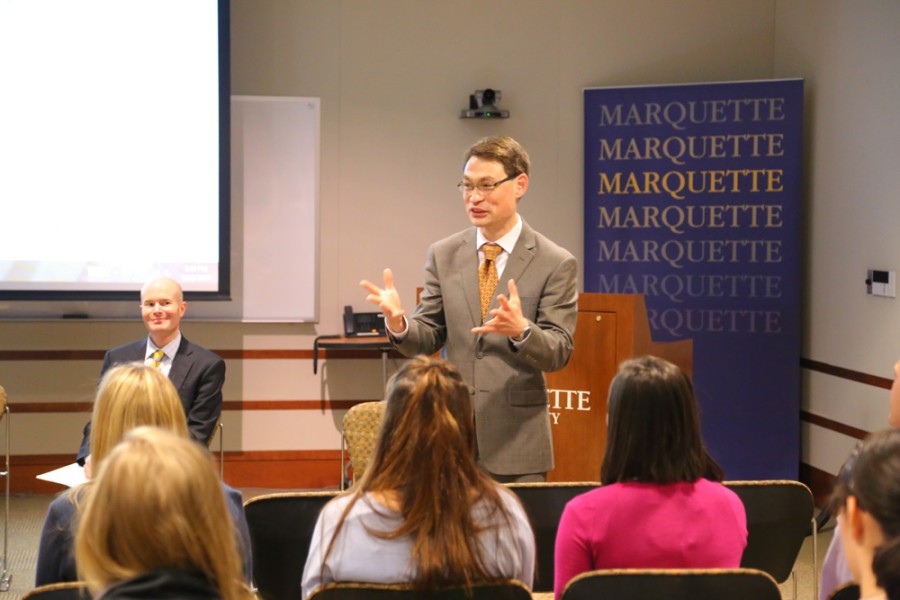A newly-restructured Common Core curriculum is expected to be announced within the next two months, according to Political Science Chair Lowell Barrington, a member of the Core Revision Facilitation Group and the Core Curriculum Review Committee.
“The process so far has been very exciting, particularly because of the very strong participation by many people on campus, from faculty to students to staff,” Barrington said in an email.
Fifteen core revision proposals were published on the university’s website before spring break. Barrington said the revision process provides an opportunity to connect the core to Marquette’s Jesuit mission.
Suggestions include having the credits be anywhere from 28 to 37, more courses focusing on Jesuit and Ignatian values and courses that require immersion outside of the classroom.
“I believe the education a student gets at Marquette, outside of his or her major, should involve more than a list of classes that make up a breadth requirement,” Barrington said. “It should reflect everything that Marquette represents, including the goal of developing students ‘for others.'”
Barrington said the Common Core went through an internal and external campus program, with both suggesting changes.
In addition, Provost Daniel Meyers and University President Michael Lovell issued a document saying the core needs to address Marquette’s Jesuit mission, involve more integration and be workable for the colleges.
Barrington said the Core Revision Facilitation Group helps guide the revision process by organizing listening sessions, surveys and other events. He said it facilitates “working groups” where 90 individuals produced the 15 proposals.
“We are hoping to create a core that is true to our mission as a Catholic, Jesuit institution and to utilize the latest research on best pedagogical practices nationally,” said John Su, director of the Core of Common Studies. “Our students deserve a truly transformative education and a well-designed core is a crucial part of that.”
Marquette is changing its core using similar revision processes utilized by other universities like Notre Dame, Santa Clara and San Diego State.
“What many of my colleagues say they want from a revised core is one that keeps the focus on the students and one that best reflects what it means to be a graduate of Marquette,” said Lars Olson, the interim chair of biomedical engineering.
Faculty, staff and administrators worked with facilitators this past fall to create proposals for revising the core. The group looked at a list of learning outcomes generated by a survey of the Marquette community. Many students prioritized communicating in writing, critical thinking and problem solving as learning outcomes ranked high according to the survey.
Su worked with Marquette Student Government to develop student focus groups to improve the proposals. Eleven groups have formed so far, each consisting of six to 10 people.
“Students have been involved in this process since the very beginning, and their contributions have been crucial,” Su said. “Our students help to create the most transformative academic experience possible.”






